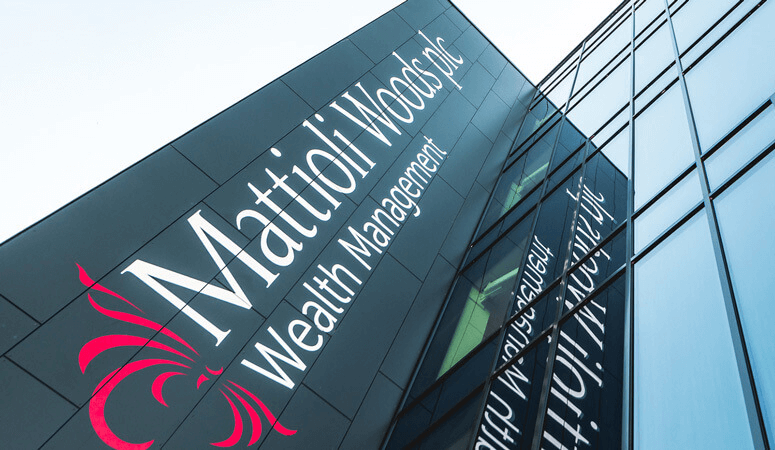For more information or to arrange a meeting to discuss your specific needs, please contact us via email at hello@mattioliwoods.com, or alternatively, please call us at 0333 034 4110.
For existing clients, please search for your consultant “by adviser”.
New to Mattioli Woods? If you have been recommended a specific adviser, please search by adviser. You can also search by service or by location.
The Board is committed to achieving high standards of corporate governance, integrity and business ethics. We recognise the need to ensure an effective governance framework is in place to give all our stakeholders confidence that the business is effectively run, enduring good outcomes for our clients and looking after the interests of the Group’s shareholders and other stakeholders.


The Board has established a sub-committee structure comprising Risk and Compliance, Audit, Remuneration and Nomination Committees, as shown in our annual report.
The Executive and Senior Management team is structured by a primary Executive Committee, which is supported by a structured number of commercial and operational committees across the Group.

The Board has adopted the Quoted Companies Alliance (“QCA”) revised corporate governance code (“QCA Code”), which requires the Group to apply 10 principles focused on the pursuit of medium to long-term value for shareholders and also to publish certain related disclosures.
Our Statement of Compliance with the QCA Corporate Governance Code can be found here.

The Board is responsible to our shareholders for the management of the Group and has a formal schedule of matters specifically reserved to it. These include strategic planning, business acquisitions and disposals, authorisation of major capital expenditure and material contractual arrangements, setting policies for the conduct of business and approval of budgets and financial statements.
More information on the Operation of the Board can be found here.

The Board has delegated authority to four committees. The Chair of each committee provides a report of any meeting of that committee at the next Board meeting. The Chair of each committee is present at the AGM to answer questions from shareholders.

The purpose of the Committee is to provide oversight and advice to the Board in relation to current and future risk exposure of the Company and its subsidiaries and the future risk strategy, including the determination of risk appetite and tolerance and the effectiveness of the risk management framework and (in conjunction with the Audit Committee) internal controls required to manage risk. The Committee shall also promote a risk awareness culture within the Company.
The Committee comprises Alison McKinna (Chair), Anne Gunther and Martin Reason.
More information on the Risk and Compliance Committee can be found here.

The key responsibilities of the Audit Committee are to review the reporting of financial and other information to the shareholders of the Company and to monitor the integrity of the financial statements, to review the Group’s accounting procedures and provide oversight of significant judgement areas, to review the firm’s internal controls and effectiveness of the internal audit function, to review the effectiveness of the external audit process and the independence and objectivity of the external auditors, to review audit fees and proposals for future years, and to report to the Board on how it has discharged its responsibilities.
The Committee comprises Martin Reason (Chair), Anne Gunther and Alison McKinna.
More information on the Audit Committee can be found here.

The Remuneration Committee is responsible for determining and reviewing the Group’s policy on executive remuneration and other benefits and terms of employment, including performance-related bonuses and share options. The committee also administers the operation of the share option and share incentive schemes established by the Company.
The Committee comprises Martin Reason (Chair), Anne Gunther, Alison McKinna.
More information on the Remuneration Committee can be found here.

Responsibilities include Board structure (including proposed changes to Board composition), a review of key matters (including Board and management succession planning), talent management and development and leadership development, undertaking a Board evaluation during the year and considering engagement of an external service provider for the 2023 Board evaluation.
The Committee comprises Anne Gunther (Chair), Ian Mattioli, Martin Reason
More information on the Nomination Committee can be found here.

All Directors are encouraged to attend all Board meetings and meetings of Committees of which they are members. Directors’ attendance at meetings during the year (including the AGM) was as shown here.

These committees form part of the corporate governance framework but are not sub-committees of the Board. The main committees comprise the Executive Committee alongside a number of sub-committees with membership typically comprising Executive Directors alongside the relevant senior managers.
Further information on other committees can be found here.

New Directors receive an induction on their appointment covering the activities of the Group, its key business and financial risks, the terms of reference of the Board and its committees and the latest financial information.
The Chair ensures Directors update their skills, knowledge and familiarity with the Group as required to fulfil their roles on the Board and its committees. Ongoing training is provided as necessary and includes updates from the Company Secretary and Nominated Adviser on changes to the AIM Rules, requirements under the Companies Acts and other regulatory matters. All Directors have access to independent professional advice at the Company’s expense where they judge it necessary to discharge their duties, with requests for such advice being authorised by the Chair or two other Directors, one of whom is a Non-Executive.

During the year ended 31 May 2023 a review of the Board’s effectiveness was undertaken, working with an external third party and led by the Senior Independent Director. This involved one-to-one interviews with Directors, review of Board and Board committee papers and minutes, and attendance at various Board or sub-committee meetings.

All Directors are subject to election by shareholders after their appointment and to re-election thereafter at intervals of no more than three years under the Company’s articles of association. However, as a matter of good practice and as recommended under the QCA Corporate Governance Code, Board policy is for all Directors to stand for re-election at each AGM.
Non-Executive Directors’ appointments are initially for 12 months and continue thereafter until terminated by either party giving six months’ prior written notice to expire at any time on or after the initial 12-month period. The terms and conditions of appointment of the Non-Executive Directors are available for inspection at the Company’s registered office during normal business hours and prior to the AGM.

The Board is committed to maintaining an ongoing dialogue with the Company’s shareholders. The principal methods of communication with private investors remain the Annual Report and financial statements, the Interim Report, the AGM and the Group’s website (www.mattioliwoods.com).
It is intended that all Directors will attend each AGM and shareholders will be given the opportunity to ask questions at the AGM on 25 October 2024. In addition, the Chair, Chief Executive Officer, Chief Financial Officer and Group Managing Director welcome dialogue with individual institutional and retail shareholders to understand their views and feed these back to the Board. General presentations are also given to analysts and investors covering the annual and interim results as well as additional presentations dependent upon the circumstances and include for acquisition activity, investment in the Group or for fund-raising.

The Board is ultimately responsible for the Group’s systems of internal control and for reviewing its effectiveness. Such systems are designed to manage rather than eliminate risks and can only provide reasonable not absolute assurance against material misstatement or loss.
In accordance with the guidance of the Turnbull Committee on internal control, an ongoing process has been established for identifying, evaluating and managing significant risks faced by the Group. This process has been in place throughout the year under review and up to the date of approval of the Annual Report and financial statements.
The Board routinely reviews the effectiveness of the systems of internal control and risk management to ensure controls react to changes in the nature of the Group’s operations.
The Group maintains appropriate insurance cover and reviews the adequacy of the cover regularly, in conjunction with the Group’s insurance brokers.
There are clearly defined procedures for reviewing and approving transactions, acquisitions, material expenditure and capital expenditure within the Group.

We are a leading provider of wealth management and employee benefits with our best-selling product being your peace of mind. We want to help you enjoy a standard of living of your choosing.